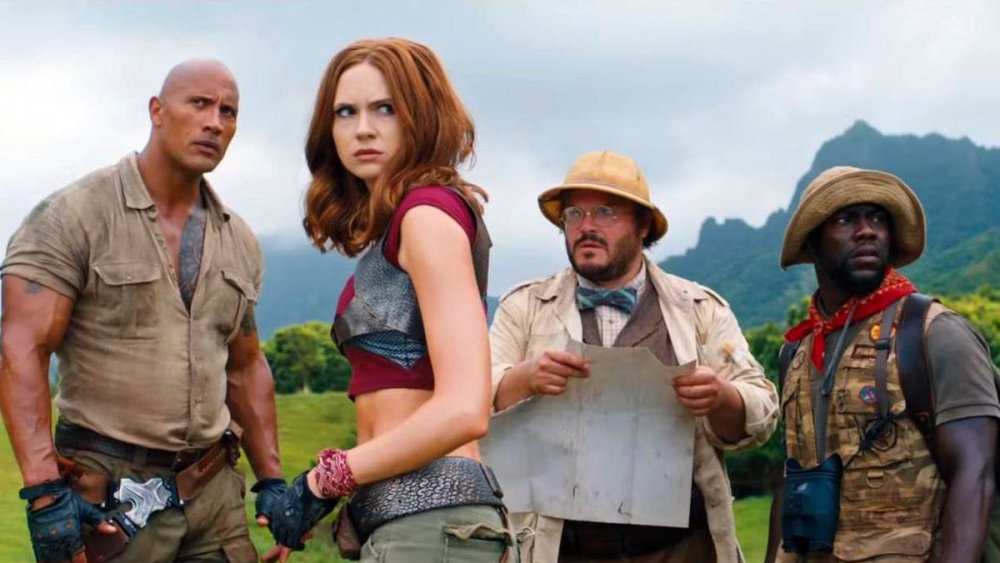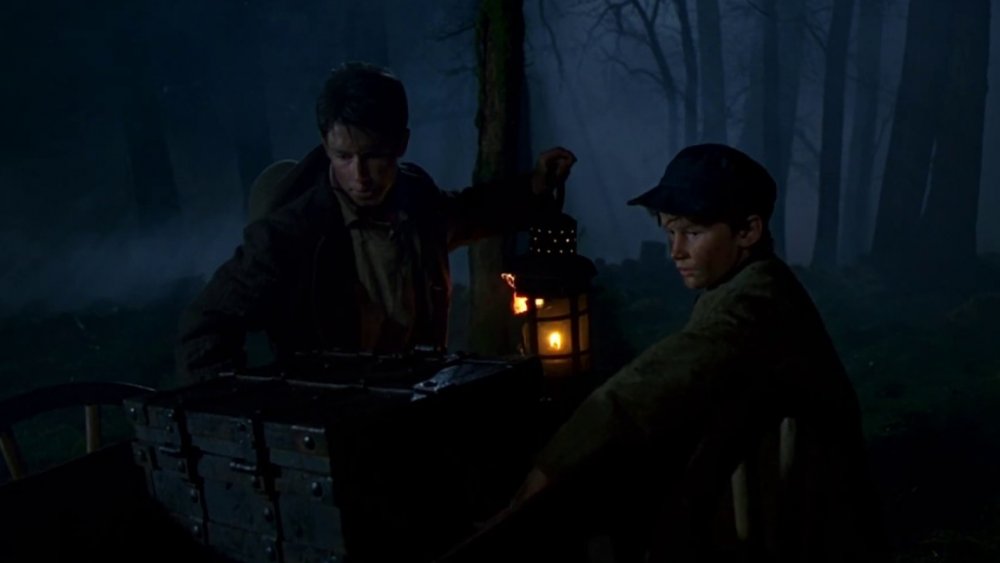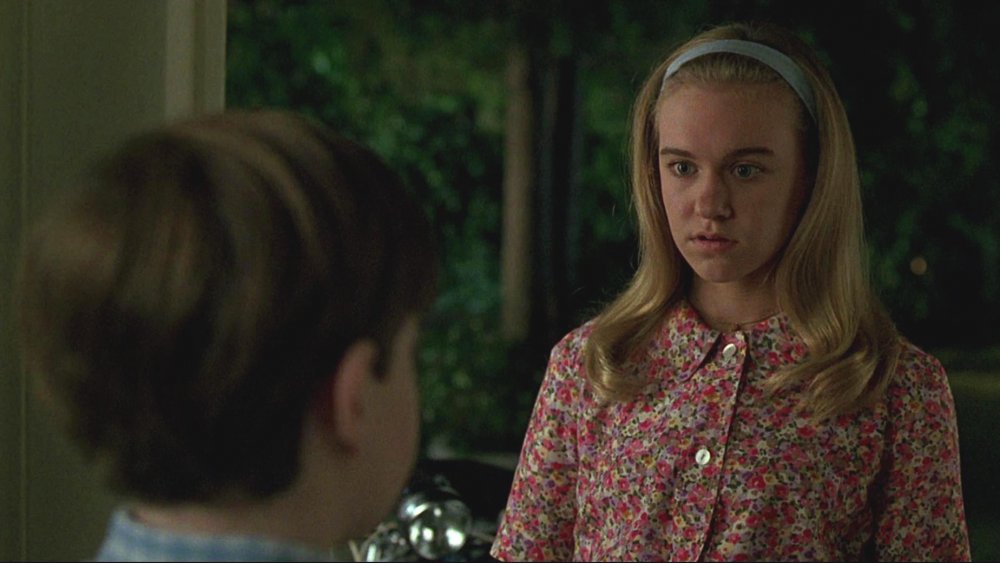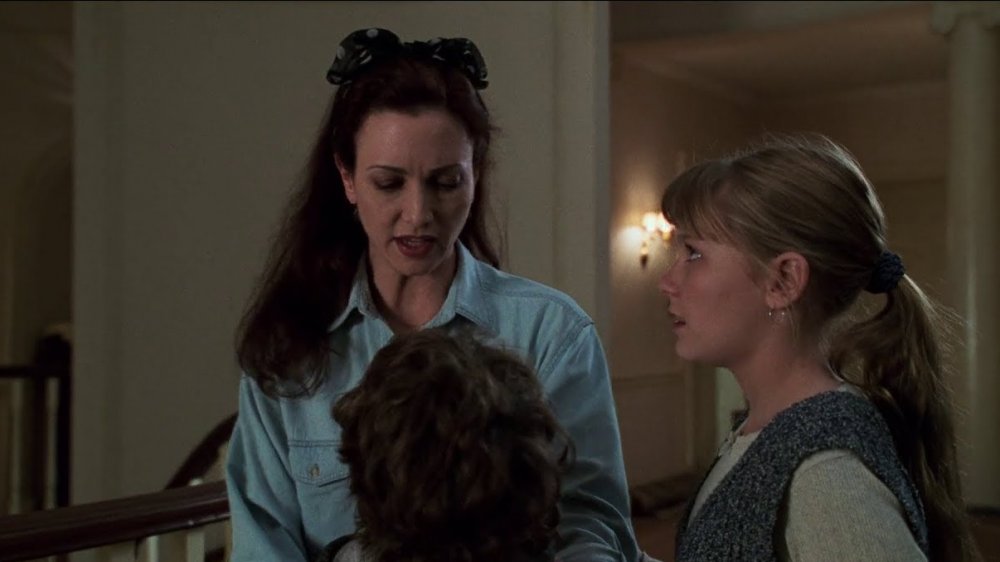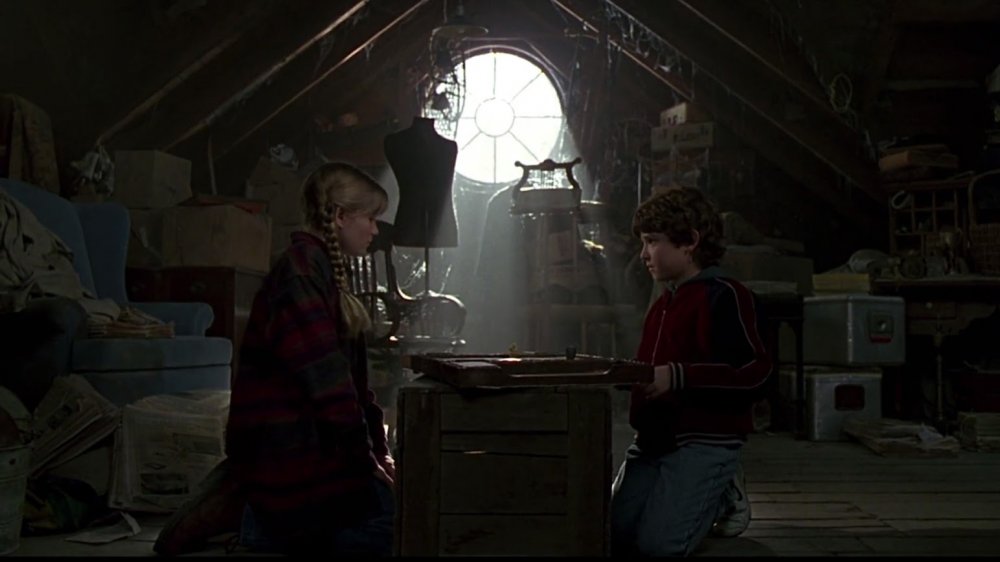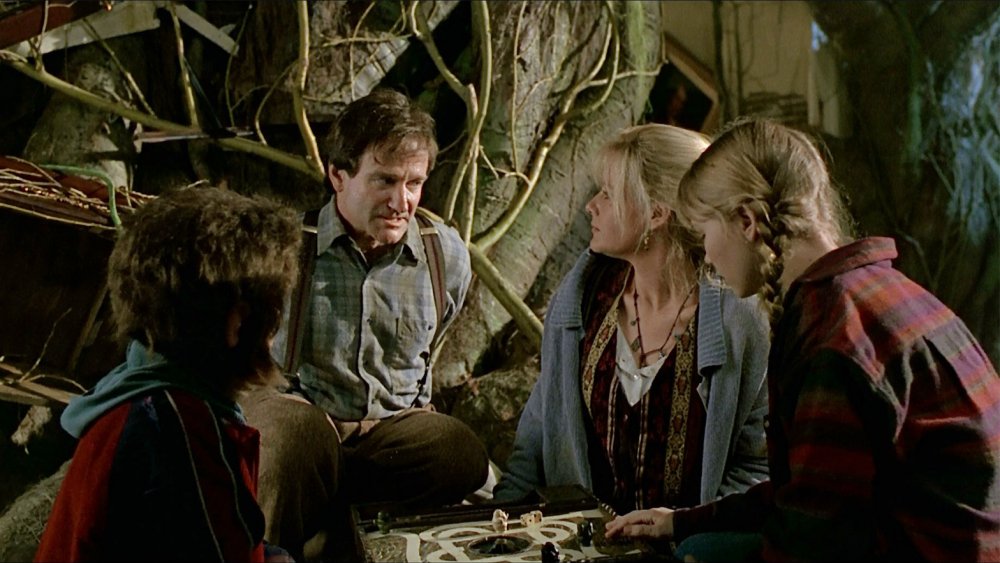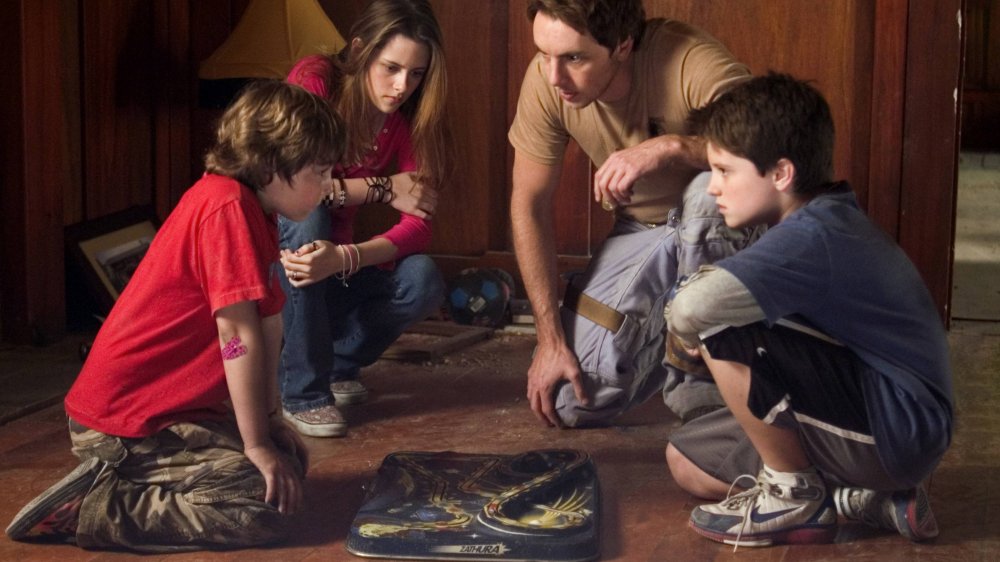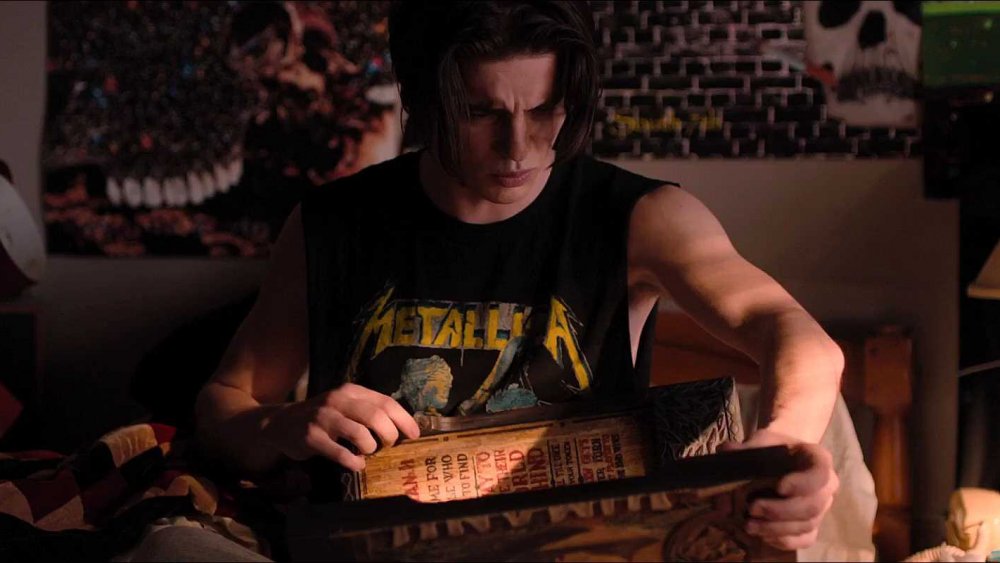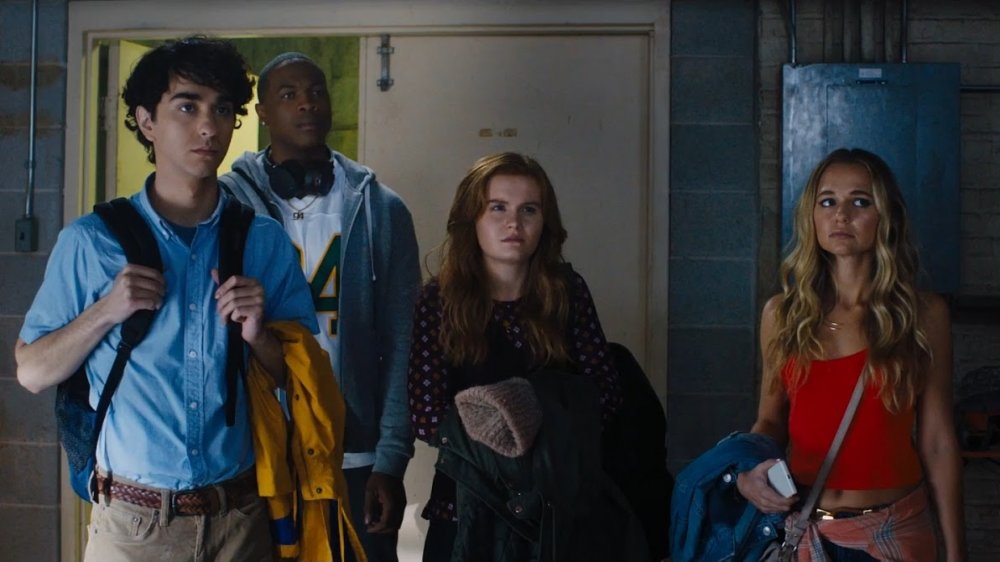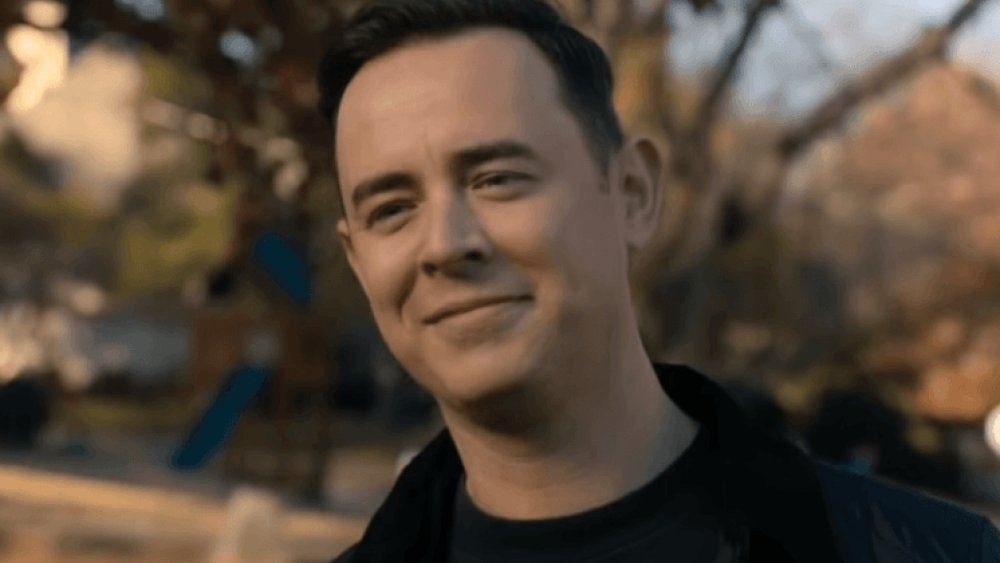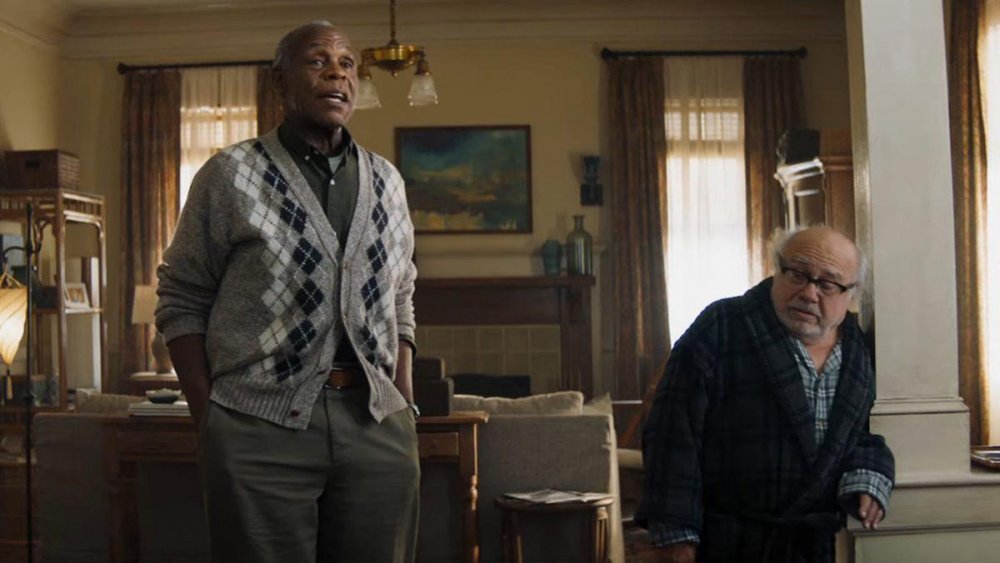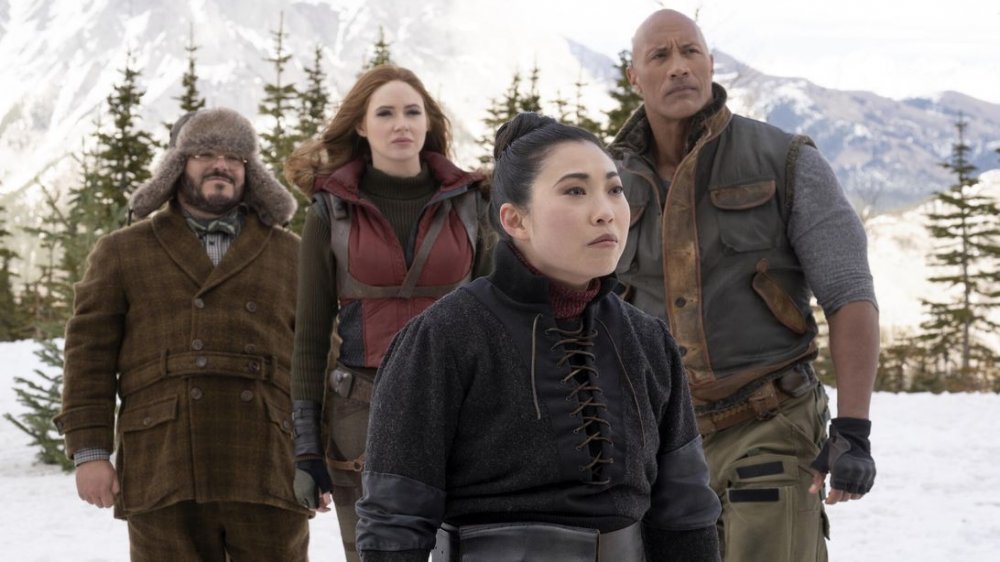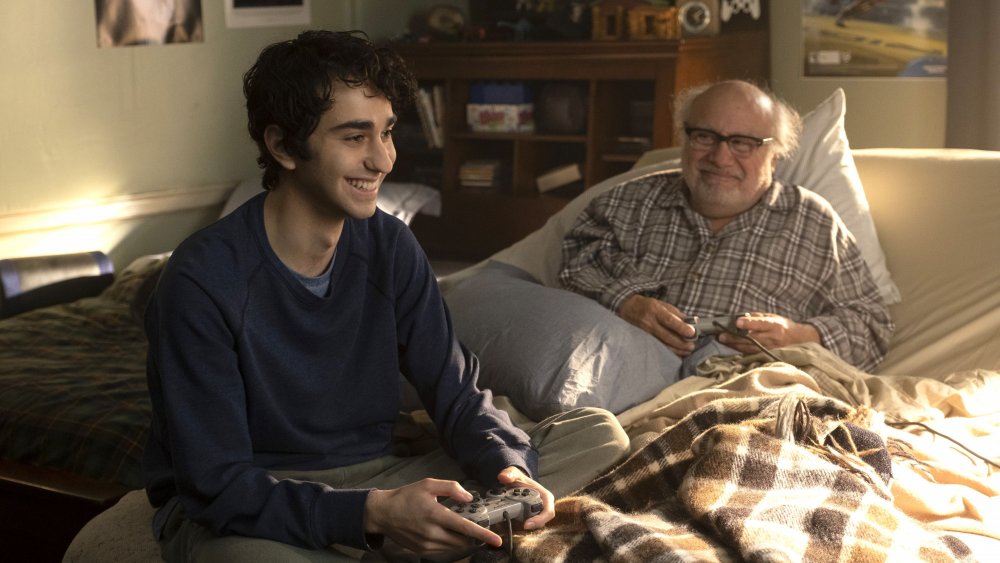The Entire Jumanji Story Explained
No one guessed in the '90s that the original Jumanji would eventually spawn a successful franchise of films that would still be going strong several decades later, but here we are. Jumanji's simple "magic board game" premise has significantly evolved since the first film's premiere in 1995, with the introduction of new characters, new rules, and the suggestion that the game itself is at least slightly sentient.
What started as the tale of two kids, two adults, and one very immersive game has now grown into a much more complex saga — especially when you start considering the multiple alternate realities spawned by various rounds of Jumanji — and we wouldn't blame you if you're not entirely sure how it's all supposed to fit together. Read on as we go all the way back to the very beginning of the story, walking through and tying together all the winding branches of adventure and friendship in the fractured realities of the Jumanji films.
Jumanji's first victims
The original Jumanji opens with a scene set in 1869, showing two brothers named Caleb and Benjamin burying a large wooden box in the woods of Brantford, New Hampshire in the dead of night. As they begin to fill in the hole around the box, Benjamin falls in, and tribal drums begin to pound, seemingly coming from the box itself. "It's after me!" Benjamin screams in terror, clawing his way out of the hole. He tries to run, but Caleb stops him, insisting that they must finish burying the box before they can leave. When Benjamin worries about what will happen if someone someday digs it up, Caleb says ominously, "May God have mercy on his soul."
This is the earliest glimpse we ever get of the Jumanji board game. We never learn anything more about where it may have come from, although based on the way the brothers are acting, it seems unlikely that they created it. It seems more probable that, like the other characters later in the movie, Caleb and Benjamin happened upon the game by chance, and only learned about its magical powers and lethal stakes once they started to play. As for who created Jumanji and why, the films never tell us.
Jumanji finds some new players
In 1969, a century after Caleb and Benjamin bury the drumming box in the woods, a young boy named Alan Parrish hears the drums while wandering through a construction site in Brantford. Rather than get freaked out by the thumping of mysterious drums, Alan seems drawn by them, suggesting that the drums of the game have some sort of siren-like properties, luring would-be players to their unwitting doom. Alan finds a game called "Jumanji" buried at the site, brings it home, and convinces his friend Sarah Whittle to play.
After Sarah takes her turn, they decide to stop playing, unsettled by the strange words and noises emanating from the game. But before they can put the board away, Alan drops the dice, and is alarmed to realize that "the game thinks [he] rolled." No sooner has a baffled Sarah repeated, "The game thinks?" than Alan gets sucked into the game, where he must wait until a player rolls a five or eight. This is the first suggestion that the game may have a mind of its own — an idea that is always hinted at, but never fully explored. However, rather than continuing to play until she can roll to get Alan out of the game, a terrified Sarah flees the Parrish house, chased away by the bats that were released on her turn.
The game is paused
During the years between 1969 and 1995, Alan grows up inside the jungles of Jumanji, where he is relentlessly hunted by big game hunter Van Pelt. Against all odds, Alan manages to survive, weaving his clothes out of leaves and vines and learning the tricks to evading Jumanji's most dangerous creatures. He ages into a man, but never really mentally develops past adolescence, thanks to his lack of contact with other humans.
Back in Brantford, Sarah is left in 1969 as the sole witness to Alan's disappearance, which she tries to explain, but finds that no one believes her. As she reaches adulthood, she starts going to therapy to help her process what she experienced as a child, which she becomes convinced were hallucinations. Eventually, Sarah starts running a business out of her house as a psychic named Madam Serena, embracing her new persona and trying to leave behind the memory of who she was.
Meanwhile, Judy and Peter Shepherd are born in the mid '80s. Their parents die in a car crash during a ski trip in Canada in early 1995, after which Peter stops talking and Judy copes by telling elaborate lies. They subsequently move in with their Aunt Nora, who buys the old Parrish mansion in New Hampshire.
Jumanji gains two more players
Two days after moving into the Parrish house, Judy and Peter find the Jumanji board game in the attic and begin to play, ignoring the two pieces already on the board after finding they can't move them. However, when Peter rolls a five, Alan is finally released from the game, returning to his childhood home as a grown man. After Alan understands that Judy and Peter have restarted the game that he and Sarah abandoned in 1969, he realizes they can't continue the game without Sarah.
Alan, Judy, and Peter go to Sarah's childhood home, where they find her posing as "Madam Serena" and doing her best to convince herself that their 1969 game of Jumanji never happened. Once Sarah realizes who Alan is, she refuses to take her turn, insisting that she can't handle the trauma of that experience again. But Alan, determined to finish the game and set things back to normal following his years trapped in the jungle, tricks Sarah into taking her turn. The four players continue taking turns, which become increasingly more difficult as Jumanji unleashes all manner of creatures and hazards into the Parrish home.
Beating the game
After finally reaching the end of Jumanji and saying its name, the "exciting consequences of the game" vanish as the instructions promised. Since the game started in 1969 and everything that followed was an "exciting consequence," Alan and Sarah return to when they started playing, becoming children once again, although their memories of adulthood still remain. Judy and Peter, on the other hand, don't exist at all in the reset version of the game, since it reverted back to before they were born.
The young 1969 versions of Alan and Sarah throw the game in a river, weighed down with bricks so that no one else will find it. They then grow up and get married, and are expecting their first child by Christmas of 1994. By then, Alan has taken over his father's company, and hires Judy and Peter's father, Jim, to come work for him. Alan and Sarah are overwhelmed to finally see Judy and Peter again at their Christmas party, although of course the children have no memory of the two of them, since in this reality, they never played the game together. During the party, Jim mentions that he and his wife are considering a ski vacation in Canada, but Alan and Sarah insist that he starts immediately, preventing the accident that would've resulted in their deaths.
There are other games out there
Although they are never mentioned in any of the Jumanji movies, 2005's Zathura: A Space Adventure confirms that there are in fact other semi-sentient, startlingly immersive games out there. The marketing for Zathura advertised it as a Jumanji spin-off (the trailer proclaimed it "a new adventure from the world of Jumanji"), although the film itself never makes any references to its predecessor, despite supposedly taking place in the same universe (and both being based on children's books by the same author, Chris Van Allsburg). Zathura also features a group of kids playing a game which draws them into its bizarre world, this time transporting a trio of siblings (including a young Josh Hutcherson and Kristen Stewart) to outer space, where they encounter a helpful astronaut.
As in Jumanji, the kids and the astronaut have to fight their way through increasingly challenging obstacles as they attempt to finish the game, although this time the dangers include aliens, robots, and other sci-fi perils rather than jungle creatures. Like Jumanji, everything returns to normal once the kids complete the game, although this time there's no decades-long alternate reality to deal with. However, Jumanji is never explicitly mentioned within Zathura, and Zathura is never mentioned within Jumanji, so although the film implies there could be more Jumanji-like games in existence, the films themselves have never taken the opportunity to tie them all together.
Jumanji evolves
Jumanji: Welcome to the Jungle opens with a man finding a board game on a New Hampshire beach in 1996 and bringing it home — which we see is the old Parrish house — to his teenage son, Alex. It took 30 years, but like Benjamin and Caleb's attempt to hide the game in 1869, apparently Alan and Sarah's solution of tying bricks to the game and throwing it into the river wasn't good enough to keep it permanently out of reach. Jumanji is a game that, it would seem, will always find a way to be played.
However, Alex is uninterested in a board game and would rather play video games. Unwilling to be thwarted by evolving teenage tastes, as Alex sleeps, the game transforms into a video game console and cartridge. When he wakes up, instead of being wary of a game that can change forms independently, Alex plays the game, and gets pulled inside. As we find out later, this happens immediately after choosing a character, not after an unlucky in-game decision as in the first movie. This makes it seem as though Jumanji has grown more even eager over time to claim victims, and has changed the rules to suit its purposes.
Alex spends the next 20 years inside the game, and as with Alan's disappearance before him, the town suspects foul play. At some point, Alex's family donates some of Alex's belongings to the high school, and the game winds up in the school basement.
The modern Jumanji
20 years after Alex disappears into Jumanji, four Brantford teens named Spencer, Martha, Fridge, and Bethany get pulled into the video game while serving detention in the high school basement in 2016. Inside the game, the kids no longer look like themselves, but like the video game avatars they've selected to represent them. They have to play through and ultimately beat the game as these avatars in order to return to the real world. Quickly, it becomes evident that the rules of Jumanji have significantly changed since the first movie, with the simple dice rolls that Judy, Peter, Alan, and Sarah navigated having been replaced by a limited life count, individualized strengths and weaknesses, and an entire narrative storyline that the game is now following.
While in the game, the teens meet up with Alex (as his own avatar), who has been living in the jungle house that Alan Parish built during his years trapped inside the game. Alex thinks only four months have passed since he got sucked into the game in 1996. The five of them work together to ascend through the game's increasingly challenging levels, which still resemble the board game version in their jungle setting and in the villainous non-player character of Van Pelt. After beating the game and shouting out "Jumanji," the five players are each returned to the points where they entered the game, Alex to 1996 and the other four back to detention in 2016.
Life after Jumanji
Fridge, Bethany, Spencer, and Martha remembering their time in Jumanji is a significant change from the way the board game worked in the original movie, which reset the entire thing back to 1969, when its first players began their game. While Judy and Peter grew up with no knowledge of the game (since they were born after the reset), Spencer, Martha, Fridge, and Bethany remember everything, despite Alex emerging from the game before they were born and thus changing the world around them. There's never any explanation given for such a major change in Jumanji's mechanics, so we're left to assume it's just yet another example of the changing nature of the game.
After Alex is returned to 1996, he grows up with his memories of the game intact, gets married, and has children. He names his oldest daughter Bethany, after the girl who saved his life in the game, and his parents continue to live in the former Parrish house. After exiting the game in 2016, the teens meet an adult Alex, who is excited to finally see their real (non-avatar) faces. They later destroy the game by smashing it with a bowling ball.
However, sometime after his friends have left, Spencer retrieves the broken pieces of the game and holds on to it, just in case. The teens remain close throughout the rest of high school and head off to college, but Spencer begins to experience significant self-doubt and withdraw from the group. Before going to meet his friends for brunch during a break from college in 2019, Spencer attempts to fix the game so he can play again as his avatar from the first movie, hoping that this will help restore his self-confidence. Unfortunately, the game is broken, and Spencer gets trapped inside. His friends go to his house searching for him, and get sucked into the game, too — except for Bethany, who goes to find the adult Alex and seek out his help.
The history of Milo and Eddie
While the four teens at least understand what they're getting into in Jumanji: The Next Level, having already played through and beaten the game three years prior, Spencer's grandfather Eddie and his former best friend Milo Walker are inadvertently pulled in along with them, with no idea of the world they've just entered. Eddie and Milo owned a diner together for several decades before Milo sold it without Eddie's consent, sparking a rift between the two. Milo shows up at Eddie's house, determined to make amends, on the same morning that Spencer's friends arrive at his house looking for him.
Initially, Eddie wants nothing to do with Milo, and at first, they just bicker constantly. Eventually, though, the two are forced to speak honestly to one another about their feud and about Milo's motivation for showing up on Eddie's doorstep that morning. Milo reveals that he recently received a terminal medical diagnosis, and he wants to heal his fractured relationship with Eddie before he dies. Ultimately deciding that their friendship is more important than their disagreement over the diner, Eddie forgives Milo for pushing him into retirement, and the two former business partners finish the game on good terms.
Beating Jumanji again
Trapped inside a version of Jumanji that's been drastically altered — either due to it being broken and then rebuilt, or simply due to the ever-changing nature of the game — the four teens, along with Alex, Milo, and Eddie, all have to work together to complete the video game again. This time, the only characters who are able to play as their avatars from the first movie are Martha and Alex, with the rest of them winding up in either different or brand new bodies (including that of a winged horse). However, this time they discover a game mechanic that allows them to swap avatars, which they use to their advantage in order to beat the game. It's unclear if that mechanic existed the first time they played through the game and they just never found it, or whether it's further evidence that the game continues to evolve.
While in the game, the characters talk honestly about the various rifts that have formed between them, including Spencer's depression and anxiety over how he fits into the group, and begin to heal. Milo and Eddie reconcile, but Milo (who completes the game as the horse avatar) decides to remain inside the game rather than return to his life outside where he is dying. Now that the game has been completed, Milo should be able to live peacefully and indefinitely inside of the game, with time potentially moving differently than it does in the real world, as it did for Alex when he was trapped inside the game.
The rules of Jumanji change one more time
After beating the game again and returning to the real world at the end of Jumanji: The Next Level, Spencer, Martha, Bethany, and Fridge finally go get their long-awaited meal together at Milo and Eddie's old diner, now called Nora's Diner. While they're there, Eddie arrives to ask for a job as a manager, having finally moved on from his bitterness enough to admit that he loved owning the diner and wants to return to that world. The new owner turns out to be Peter and Judy's Aunt Nora from the first film (in which she had wanted to turn the Parrish house into a bed and breakfast), who hires Eddie on the spot.
Meanwhile, while the teens are away, a mechanic shows up at Spencer's house and hears the drums of Jumanji. We never see what happens when he encounters the still-partially-broken video game in Spencer's basement, but the last thing we see in The Next Level is a group of ostriches running down the street outside Nora's Diner. While we don't know — yet — what happened that led to the animals of Jumanji being able to exit the game and emerge into the real world, each movie has established that the rules of Jumanji are ever-evolving to suit its own mysterious purposes. With wild animals once more charging down the streets of Brantford, it's clear that the rules of Jumanji have changed yet again.
